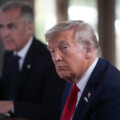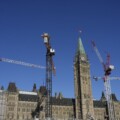Everyone wants to save the Earth, but no one wants to help Mom do the dishes. – P.J. O’Rourke
Not all who wander are lost. – J. R. R. Tolkien
The reasons for the Trudeau government’s poor political standing are many. You don’t usually fall behind your chief opponent by 20 points for a single reason. But a key reason is that the prime minister and his team promise big but underdeliver. A towering symbol of this is their promise to plant two billion trees by 2031 to reduce GHGs. The program is off to a bad start.
By itself, not a big deal. Trees aren’t usually a ballot issue, but the tree program represents a pattern that is hard to ignore.
Last year in an audit, Canada’s environment commissioner, called out the tree planting program for failing to get timely agreements with the provinces, failing to get commitments through to 2031, not giving nurseries the certainty and time they need to start growing 350 million trees a year, and generally poor planning. The program didn’t even have annual tree planting targets. Where’s a deliverologist when you need one?
The report also noted, and this is infuriating, that in 78 sites where 10,000 or more trees were planted, they planted all the same species of tree, a monoculture. The commissioner noted in the bloodless language of the public service, that monocultures “do not support biodiversity and other benefits related to environmental and human well-being.” No kidding. Enhancing biodiversity is one of the key goals of the entire program. How could they get this so wrong?
There is more and it’s depressing reading.








